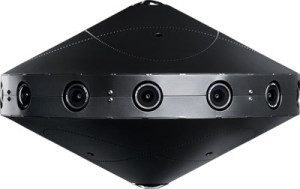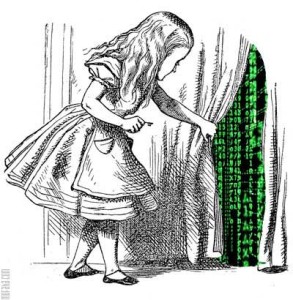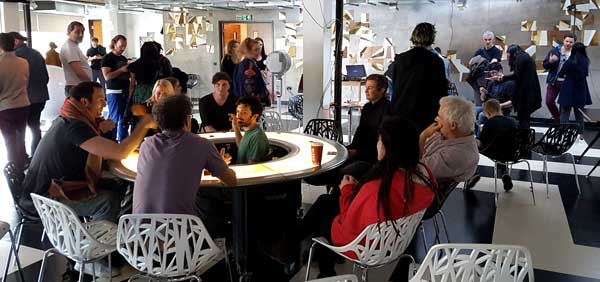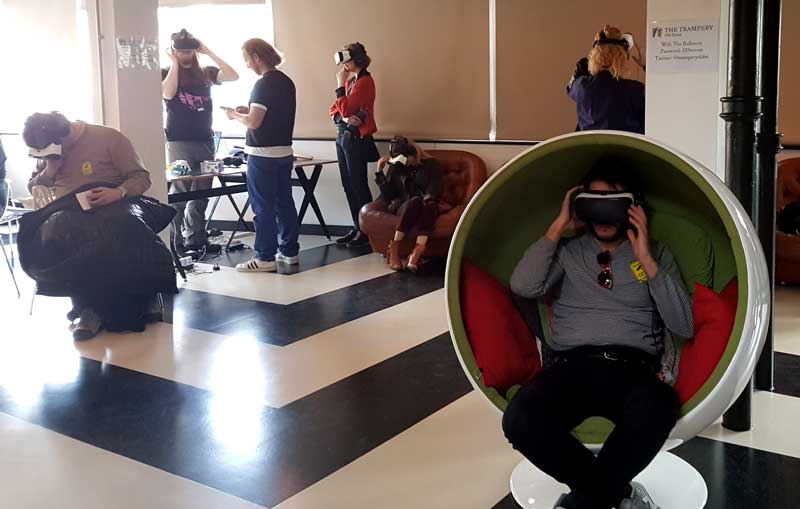Virtual Reality
I’ve noticed while reading back on some of these posts concerning virtual reality that a post date is important to include as the technology and the industry is evolving so rapidly.
Virtual reality has been round for a few decades though a new breed of consumer VR technology is launching this year. I first came across this at Sheffield DocFest documentary festival in the summer of 2015. The exhibition included a few computer-generated VR experiences and a few 360 documentaries by the VR production company Vrse. 360 video is as the name implies. 360 degrees of video recorded simultaneously and then viewed with a VR headset. I had seen the Ted talk by Chris Milk of Vrse who described 360 documentary as the ultimate empathy machine. I can see why. The realism and immersiveness can create more connection with the characters and make you care more. At BVE 2016, Britain’s largest video production industry event there was more discussion of virtual reality. This time it was about the practical and corporate applications of 360 video in training, marketing and branding. Corporate video production is my business so this was intriguing. The highlight for me though was a panel discussion and live VR demonstration of a project called Hack the Planet. An exhilarating, psychedelic fly-through with soundtrack by film composer Simon Boswell that made me want to dance. The whole thing was inspiring. Enough to go out and buy a new Samsung S7, Gear VR and 360 camera.
Hackstock – Festival of Immersive Media
Hackstock was an ancillary event to the London sci fi festival held over the May bank holiday weekend 2016 and organised by the people behind the Hack the Planet project. 4 days of loosely arranged discussions, networking and VR demos. James, one of the organisers preferred to call them immersive experiences. The term virtual reality can attract some debate over what it actually refers to. Most consider media for google cardboard without position tracking to be not true VR. The same for 360 video. Whatever you call it, there is a growing interest in these multimedia experiences that create a feeling of presence, displacing our sense of place and time. This emerging scene brings together a diverse collection of interests. Hackers, filmmakers, artists, games and content developers, musicians, sci-fi enthusiasts, counterculturalists and explorers of consciousness.
360 film and video. The end of cinema?
I’ve heard a lot of discussion over the past year about how this technology might affect the way we consume film and video in a social setting. If 360 film viewed on a VR headset gets popular will the cinema survive? Will we retreat into our own headset bubbles and lose the interaction of social viewing? Hackstock was in part a mini film festival. There was a constant stream of people putting on Samsung GearVR headsets for a film or 2 and then sharing opinions. It definitely made for a socially interactive environment. I think 360 film has the potential to create entirely new types of events.
Personally, the Samsung gearVR gives me a headache so I had to limit my exposure but what I saw was certainly interesting and discussion worthy. Most had a sci-fi angle though ‘Viens’ by SpheresVR (screened at Sundance this year) had an interesting take on intimacy and sexuality. My friend didn’t like it. She found the 10 minutes of innocent, cuddly group sex completely unerotic and slightly disturbing. Too exposed with no mistique. This is exactly why this is an art piece and not porn. It was an interesting piece to see given that the porn industry is one of the biggest drivers of VR. This film aims to make people reflect on sexuality rather than titilate. The headset gives an odd sense of voyeurism.
 Filmmaking in this medium necessitates a whole new set of storytelling challenges and possibilities. It might not be a replacement for 2-D filmmaking though does open up possibilities for creating new experiences and interactivity in film. Requiring the viewer to take part in a story, even by just turning their head, begins to cross over into the world of gaming. This might be a challenge for a culture used to a more passive role in cinema. The medium lends itself to short, bite-size experiences of about five minutes. Long form 360 film would certainly require better headsets and more comfortable viewing conditions. I’m not sure that traditional feature film making will find a place in 360 though if it works at all, it will likely define a completely new type of storytelling experience.
Filmmaking in this medium necessitates a whole new set of storytelling challenges and possibilities. It might not be a replacement for 2-D filmmaking though does open up possibilities for creating new experiences and interactivity in film. Requiring the viewer to take part in a story, even by just turning their head, begins to cross over into the world of gaming. This might be a challenge for a culture used to a more passive role in cinema. The medium lends itself to short, bite-size experiences of about five minutes. Long form 360 film would certainly require better headsets and more comfortable viewing conditions. I’m not sure that traditional feature film making will find a place in 360 though if it works at all, it will likely define a completely new type of storytelling experience.
Virtual reality and a change in consciousness
Some of the most interesting moments at Hackstock were the informal roundtable discussions on themes like culture, identity, gender and consciousness. Some have said of virtual reality that it could instigate a paradigm shift on the scale of mobile phones or even the Internet. A mass take up of this technology will certainly change the way we consume media but might also affect our minds. The curious experience of ‘presence’ kicks in when there are enough factors suggesting that the experience is real even if our conscious mind knows it to be an illusion. In this state of suspended disbelief, the experience can affect us as if it were real. This is why VR has such potential for change. Some of the most interesting VR research is about the effect of experiencing the perspective of a different person. Experiencing the body and environment of a different gender, race or culture will hopefully make us a more empathetic species. The sense of presence in an experience also allows our minds to accept and retain information more readily. This is good news for training the mind in education, therapy and self-development. The subconscious mind seems fundamentally unable to distinguish between an actual experience and one that is imagined in a sufficiently immersive state such as deep hypnosis or a lucid dream. If virtual reality can induce behaviour change in this way we could be onto something truly revolutionary.
Experiencing presence outside of our normal waking reality is a curious sensation that might have profound effects on our perception of reality. One of the outcomes of lucid dreaming for example, is that waking reality can also feel quite dreamlike. This is not new. Spiritual practices like Dzogchen Buddhism have for millennia been viewing reality as an illusion. Where lucid dreaming attempts to impart awareness onto an illusionary state, virtual reality does the opposite. Deliberately tricking the mind into believing an illusion. They reach a similar place. By tricking our senses we might actually be creating more awareness.
The future of virtual reality
 With the announcement of the Lytro Immerse camera using Lightfield technology, we will soon have video based experiences that you can actually move around in as you might with computer generated VR. This is exciting. Research at Oculus suggests high frame rate 16 K resolution to be the point where video would be indistinguishable from reality. If VR technology continues into the future could we expect a ‘Matrix’ level of presence and immersiveness? Variations on the simulation hypothesis such as Nick Bostrom’s simulation argument explore the possibility that we are already living in such a virtual reality programmed by our future descendants. Assuming substrate independence (that consciousness could in theory be implemented in a non-biological form), he argues using temporal logic that the likelihood of us living in a simulation is about 30%. Physicist Tom Campbell’s virtual reality model suggests that we are the originators and proposes an information layer as the basis of reality. Consciousness produces our experience of the material universe from this information something like computer software produces an image from a file. Whatever the mechanism, our brains appear to create our experience of reality based on the information received from our senses. These senses are extremely limited relative to the amount of information in existence. Our eyes for example can detect only a tiny fraction of the total electromagnetic spectrum. By digitally augmenting our senses we might perceive completely new experiences of the natural world. If, in the future, we are able to feed information directly into the brain we’ll presumably have a convincing simulation. With this come a bewildering number of implications, both positive and negative. If virtual and augmented reality continue to be developed we have an exciting though precarious future in store.
With the announcement of the Lytro Immerse camera using Lightfield technology, we will soon have video based experiences that you can actually move around in as you might with computer generated VR. This is exciting. Research at Oculus suggests high frame rate 16 K resolution to be the point where video would be indistinguishable from reality. If VR technology continues into the future could we expect a ‘Matrix’ level of presence and immersiveness? Variations on the simulation hypothesis such as Nick Bostrom’s simulation argument explore the possibility that we are already living in such a virtual reality programmed by our future descendants. Assuming substrate independence (that consciousness could in theory be implemented in a non-biological form), he argues using temporal logic that the likelihood of us living in a simulation is about 30%. Physicist Tom Campbell’s virtual reality model suggests that we are the originators and proposes an information layer as the basis of reality. Consciousness produces our experience of the material universe from this information something like computer software produces an image from a file. Whatever the mechanism, our brains appear to create our experience of reality based on the information received from our senses. These senses are extremely limited relative to the amount of information in existence. Our eyes for example can detect only a tiny fraction of the total electromagnetic spectrum. By digitally augmenting our senses we might perceive completely new experiences of the natural world. If, in the future, we are able to feed information directly into the brain we’ll presumably have a convincing simulation. With this come a bewildering number of implications, both positive and negative. If virtual and augmented reality continue to be developed we have an exciting though precarious future in store.


